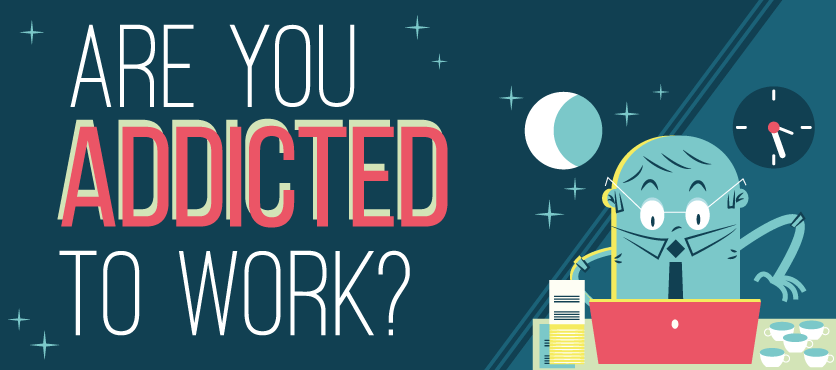Are you addicted to work?
The term ‘workaholic’ was first coined nearly half a century ago, but with the rise of email and messaging, mobile phones and laptops, it is becoming more common place. 27% of us claim to be workaholics (against an estimated 10% who might be clinically considered so). Fortunately, there are steps to be taken to identify whether or not we’re overdoing things — and how to chill out if that’s the case.
If you find yourself regularly working outside of hours, getting ill or a decline in your relationships, chances are you should consider yourself a work addict. The balance between our work lives and our personal and leisure lives may tend to waver week by week, but if work is regularly cutting into your outside activities – particularly those that you share with your friends and family – a reassessment of things is needed. If you find yourself going out of your way to justify your extra efforts, those around you may see the picture more clearly, so heed any warnings that colleagues or loved ones offer.
These friends and family should also be willing to help keep you on track when you decide to cut down. A reminder call from home thirty minutes before you’re due to depart the office can help prevent you slogging on well past leaving time. Planning your private life ahead means that you’ll have commitments you’ll try to keep to, rather than trying (and exhaustedly failing) to be spontaneous.
To help you identify whether or not your work pattern is truly a problem, work your way through this new flowchart that we’ve prepared — and if you’ve cause for concern, a thorough guide to beating that workaholic tendency is provided below.
Sources
Weissman, J. (2013). Is There Really Such a Thing as a ‘Workaholic’? theatlantic.com
Cahillane, L. (2016). How to: Achieve a work/life balance. reed.co.uk
Tlalka, S. (2015). Free Mindfulness Apps Worthy of Your Attention. mindful.org
Embed This Image On Your Site (copy code below):






